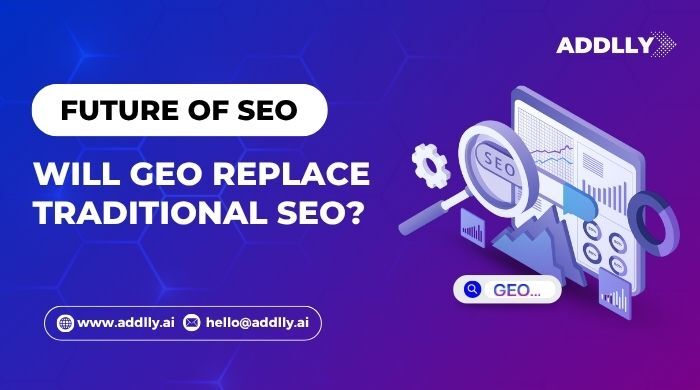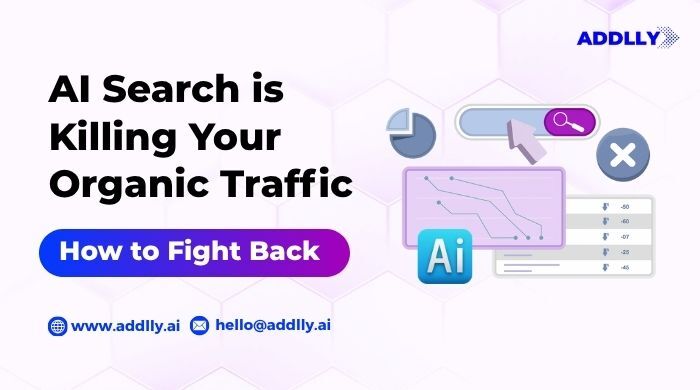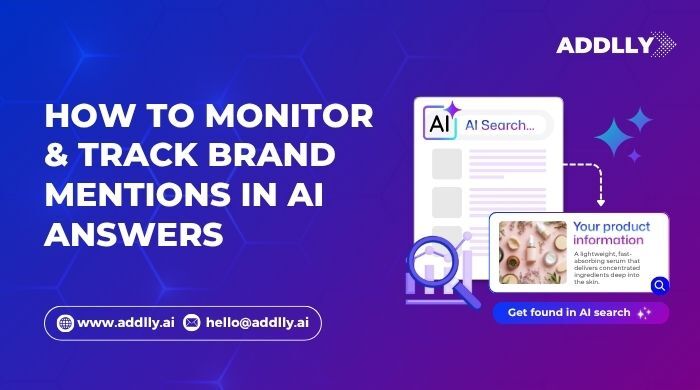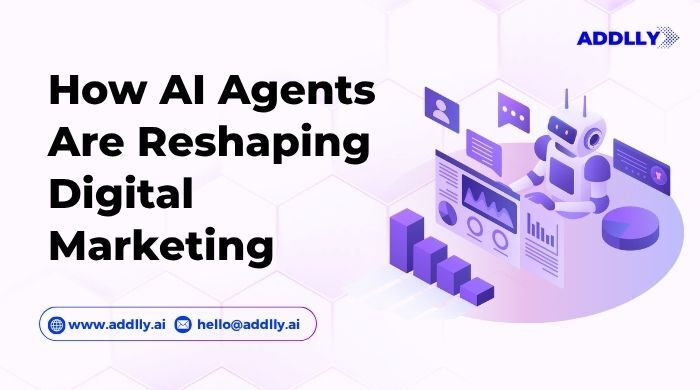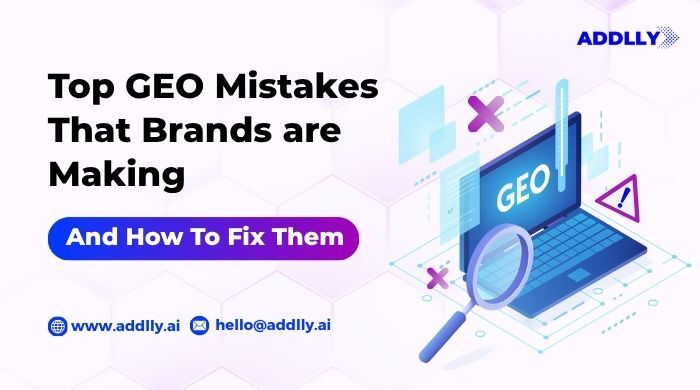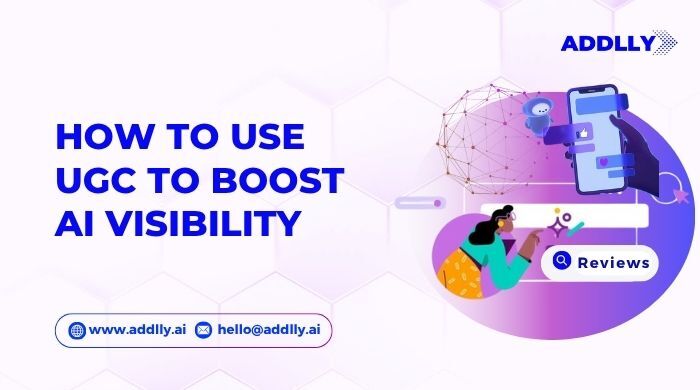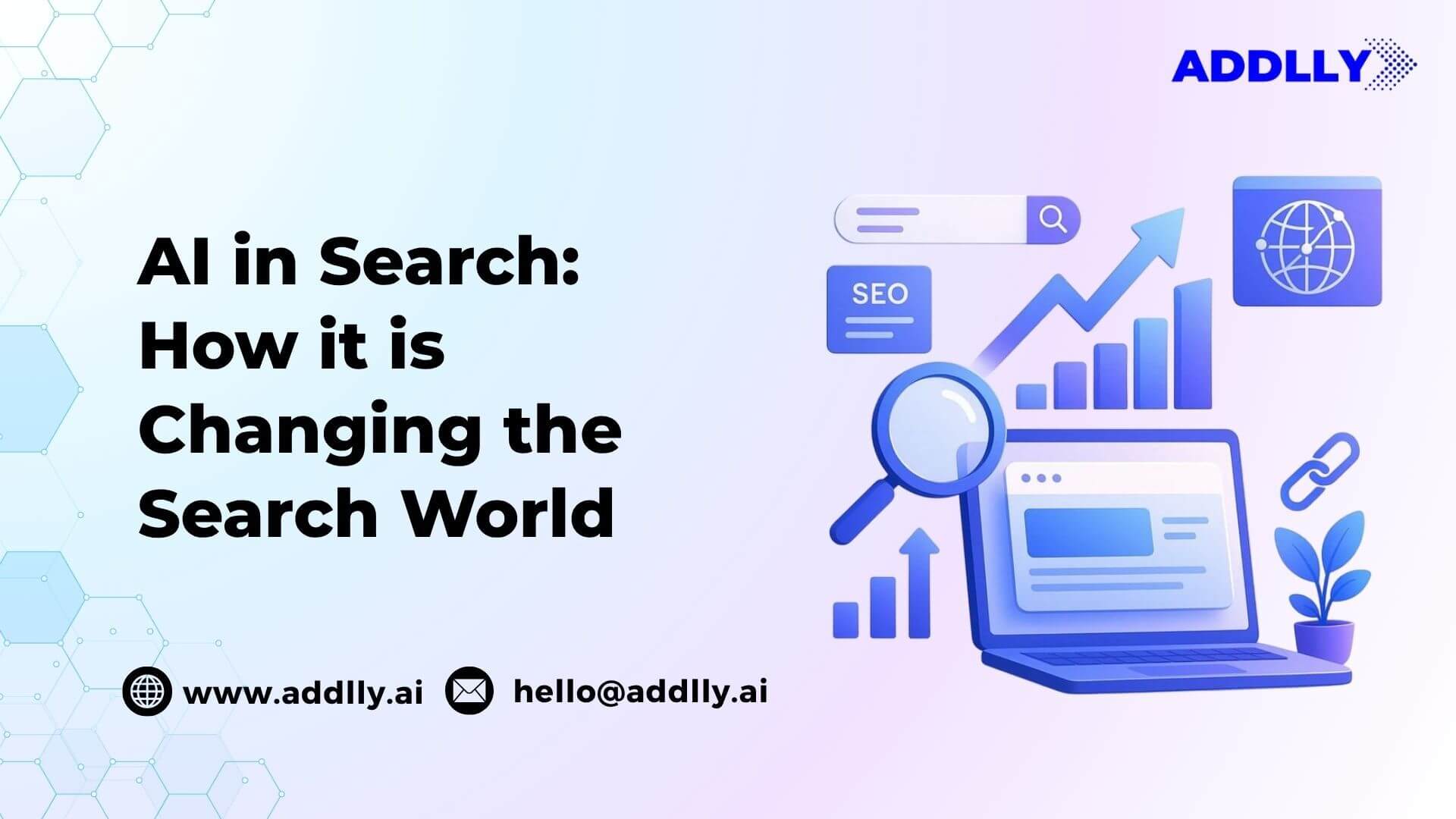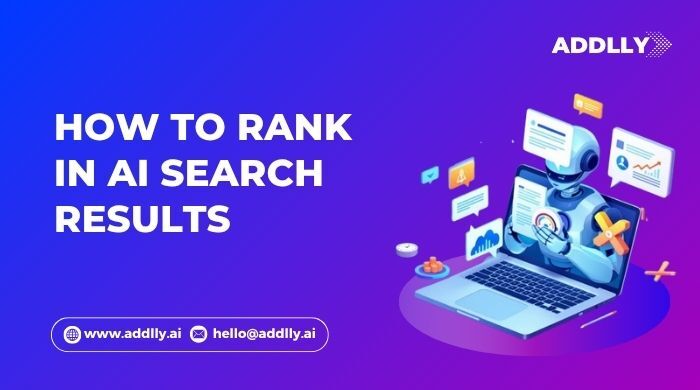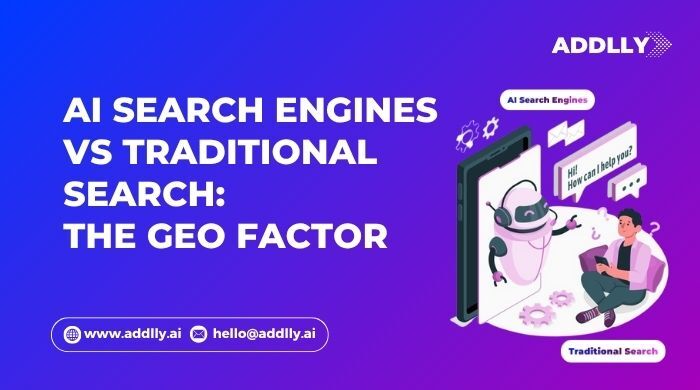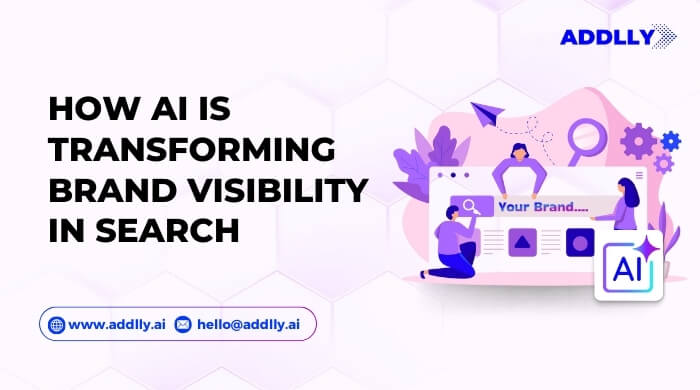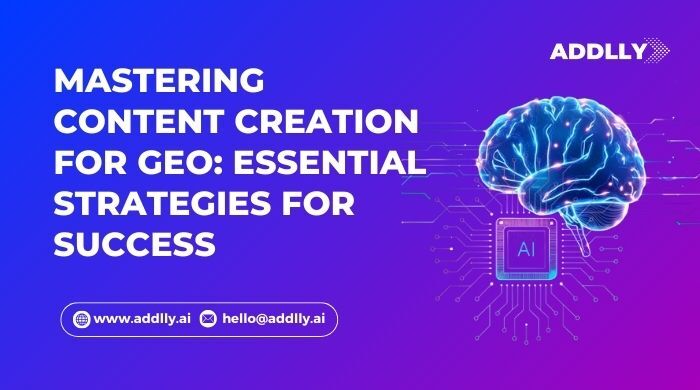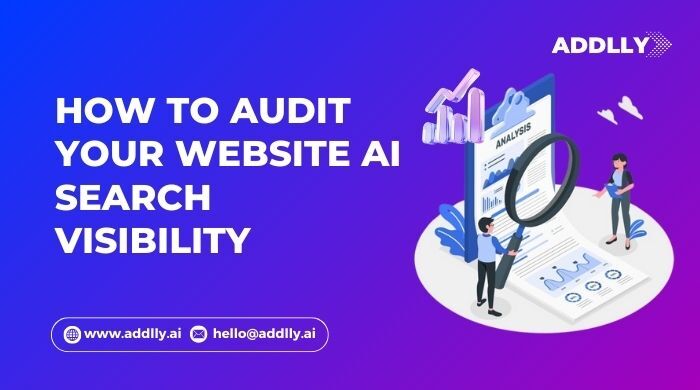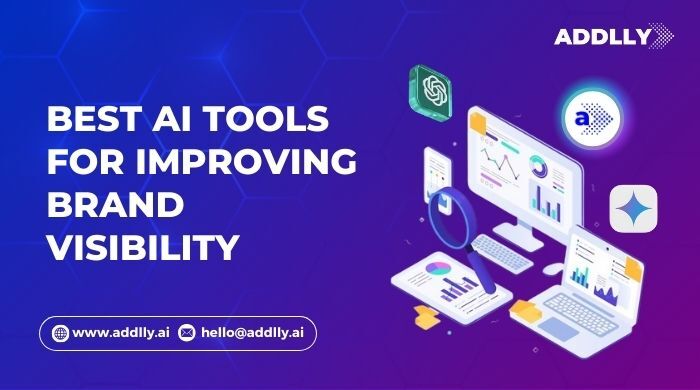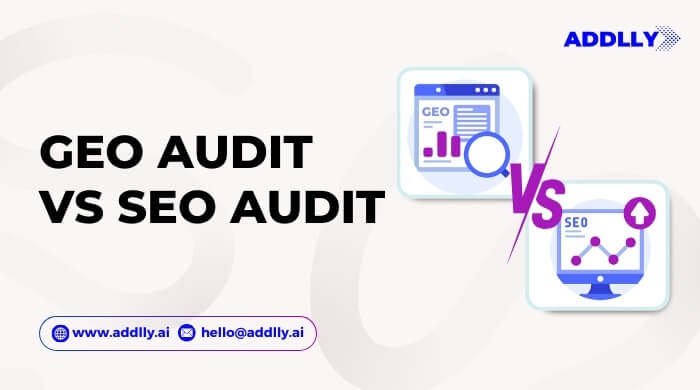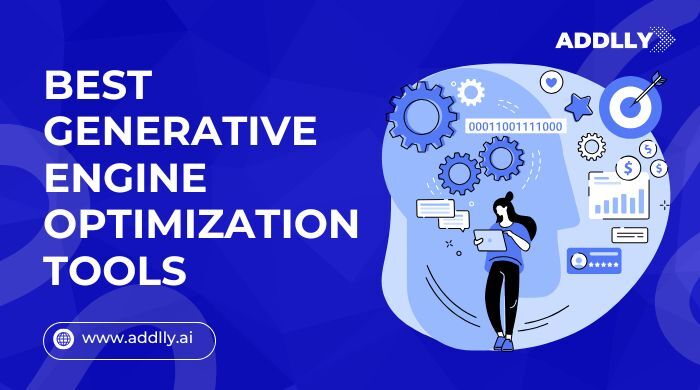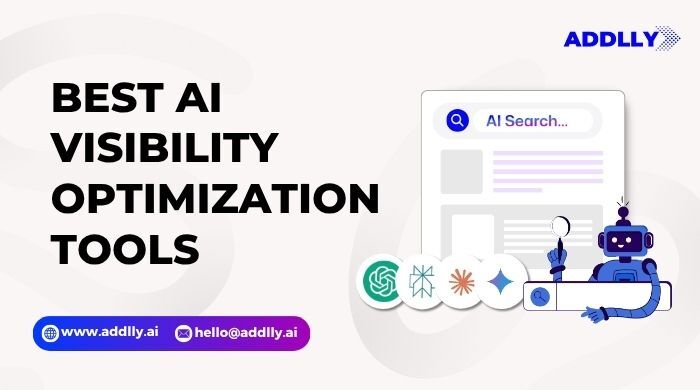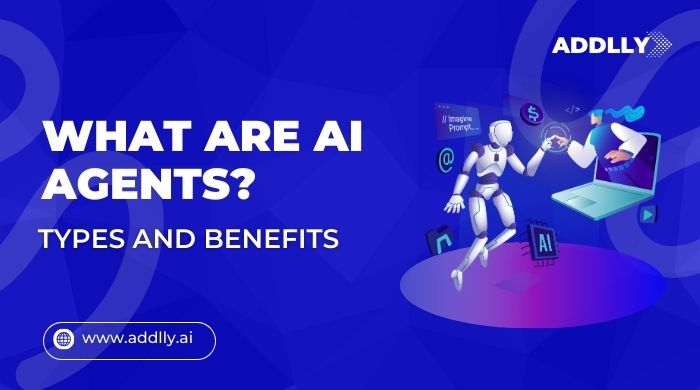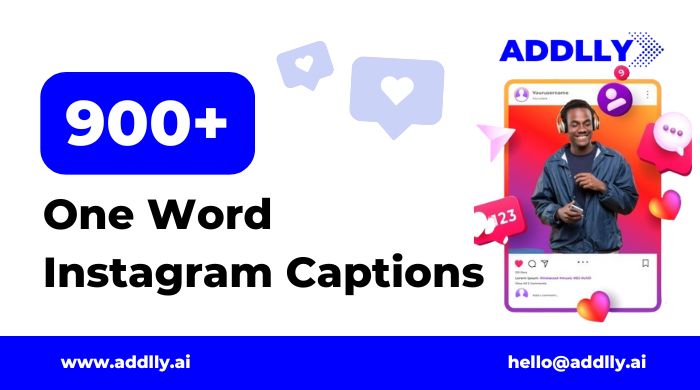Blog
Learn expert strategies and actionable tips on our blog to boost your content marketing, optimize your SEO, and enhance your social media presence with AI.
As digital marketing continues to evolve, SEO (Search Engine Optimization) remains a cornerstone of online visibility. However, the landscape of SEO is undergoing a significant transformation, largely driven by advancements...
As artificial intelligence continues to reshape the way we interact with search engines, many businesses are seeing a significant shift in their organic traffic. AI search features, like Google’s AI...
AI-generated answers now decide which brands get seen first. When people ask tools like ChatGPT or Google AI Overviews for recommendations, the brands mentioned in those AI responses gain visibility,...
AI agents are fundamentally reshaping how businesses operate and approach digital marketing, ushering in a new era of intelligent, data-driven decision making. Unlike simple automation tools that handle repetitive tasks,...
Brands are making critical GEO (Generative Engine Optimization) mistakes that severely limit their visibility in AI-powered search platforms like ChatGPT, Perplexity AI, and Claude. Research shows that only 7% of...
Traditional SEO alone won’t cut it anymore. AI search engines like ChatGPT, Google AI Overviews, and Perplexity now deliver direct answers, many of which are based on user generated content...
AI is transforming how users interact with search. From Google Search Results to AI Overviews and custom AI responses, people now get summaries, comparisons, and answers without clicking through multiple...
Search doesn’t look the same in 2025, and that’s not just a UI tweak. If you’ve searched for anything from “Best AI Tools for Improving Brand Visibility” to “how to...
Traditional SEO alone won’t cut it anymore. AI search engines like ChatGPT, Google’s AI Overviews, and Perplexity now deliver direct answers, not just links. To rank in AI search results,...
Search engines are the backbone of the internet. For over two decades, they’ve been the primary way people find information, explore websites, and make decisions. Traditional search engines, led by...
For years, brand visibility in search has followed a relatively predictable path. You created content, optimized for keywords, earned links, and climbed the rankings in traditional search engines like Google....
Generative Engine Optimization focuses on optimizing for AI search engines and AI-driven platforms rather than traditional search engines alone. Instead of ranking pages in search engine results pages (SERPs), GEO...
In this guide, we’ll break down the top 11 Profound alternatives that help teams: As AI platforms like ChatGPT, Gemini, Claude, and Google AI Overviews become the go-to sources for...
Search has entered a new era. Traditional search engines like Google have long relied on algorithms that reward keyword optimization, backlinks, and technical SEO tactics. But with the rise of...
Auditing your website AI search visibility requires a systematic evaluation of how well your content performs across AI-powered search platforms like ChatGPT, Perplexity, and Claude. This process identifies technical barriers,...
For more than two decades, digital visibility has been defined by traditional SEO. Marketers built strategies around Google rankings, backlinks, and featured snippets, measuring success by click-through rates and keyword...
Measuring GEO success (Generative Engine Optimisation) involves tracking specific metrics designed for AI-powered search environments, such as AI visibility scores, attribution frequency, engagement rates, and geographic performance insights. These metrics...
AI tools for improving brand visibility have become essential for businesses competing in 2025’s AI-driven search landscape, offering comprehensive solutions for tracking, optimization, and content creation that ensure brands remain...
GEO vs SEO isn’t just a trend, it marks a deeper shift in how brands get discovered. SEO helps your content rank on traditional search engines. Generative Engine Optimization (GEO),...
How to run a GEO Audit is becoming one of the most important questions for businesses in the age of generative engine optimization. A GEO Audit helps a website stay...
When comparing GEO Audit vs SEO Audit, the conversation is about more than traditional ranking. Search engines are changing, and AI search is reshaping how people find information. Generative engine...
Generative engine optimization tools are changing how brands show up in AI search engines like ChatGPT, Perplexity, and Google Gemini. These GEO tools help businesses stay visible when AI answers...
AI visibility is the new priority for digital growth, and finding the best AI visibility tools is the smartest step brands can take in 2025. The way people search has...
AI agents are software programs that use artificial intelligence to perform specific tasks with little to no human intervention. These intelligent agents process collected data from their surroundings and take...
Looking for one word Instagram captions for your next Instagram post? You’re in the right place. This blog brings you the best and freshest one word Instagram captions to boost...
In 2025, finding the perfect Instagram captions for girls can be a game-changer for your social media presence. Whether you’re looking for the best, cute, or attitude-filled captions, we’ve got...
Getting more views on Twitter is the goal of many creators, brands, and businesses looking to connect with a bigger audience. With millions of Twitter users active daily, standing out...
Vanish Mode on Instagram lets users send temporary messages that disappear after the chat ends. But many users want to switch back to normal mode for message safety or comfort....
Ever wondered how to make ChatGPT sound more human while using it for blog posts, content creation, or AI-generated text? Today, we’ll break down how to turn AI-generated content into...
AI SEO tools are changing how businesses win visibility online. They help brands move beyond traditional checklists and show up where people actually search today. Instead of only fighting for...

